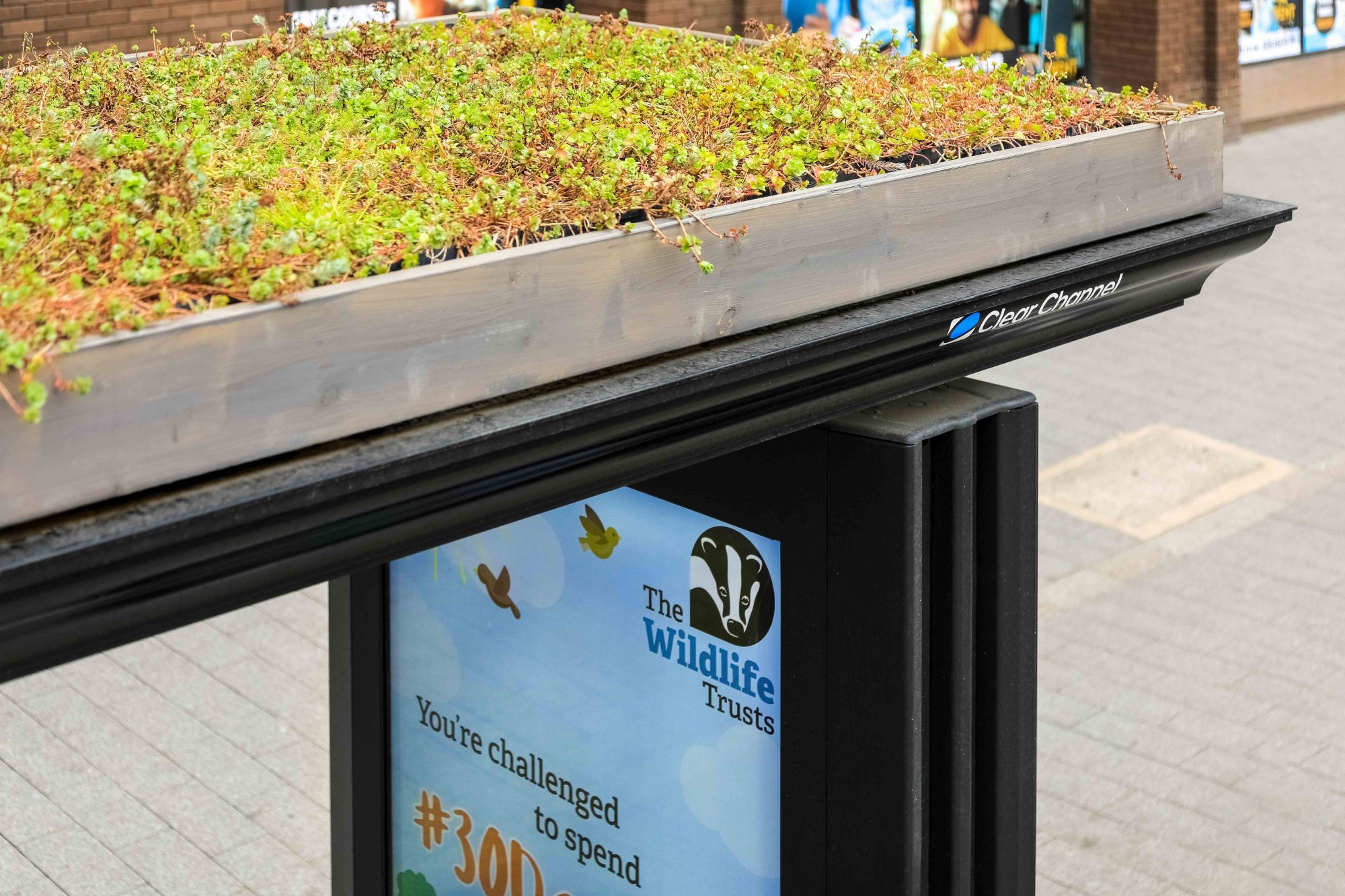Bee bus stops are to become a new feature around UK cities, as they support wildlife and bees in city areas with their living roofs
As bees have been declining at a fast rate due to climate change, human activity, and pollution, many people have taken up initiatives like living roofs to invite them back into city spaces.
The Wildlife Trusts’ report, Insect Declines and Why They Matter, highlights how we have lost more than 50% of insects since 1970, and showed that 41% of the Earth’s remaining five million insect species are now threatened with extinction.
The new bee bus stops – created in a five-year partnership project between the Wildlife Trusts and Clear Channel – are established green-roofed bus stops across UK cities which aim to provide more to pollinate for insects which have declined in human-dominated spaces.
“We’re living through a nature and climate crisis, and we need to use every tool we’ve got to tackle it – which means thinking creatively”
These living roof bus stops, as well as other urban greening campaigns that the partnership has developed like green street furniture, are to engage the public in rewilding and encourage local councils to make more environmentally conscious choices.
Ready to take bee bus stops to even more locations across the UK
The partnership aims to install over 150 of the bee bus stops across the country by the end of 2022, with over 40 already in place from as far north as Glasgow, and down to Brighton on the south coast.
As urban biodiversity becomes increasingly critical, Clear Channel’s living roofs have already been carefully assessed for their wildlife credentials by The Wildlife Trusts and classified as having “High Strategic Significance.”
Local Authorities will also have expert guidance from their local Wildlife Trusts to place the transport living roofs in locations that will have the biggest positive impact on wildlife.

Playing an active part in tackling the decline of insects
The bus stops will also help wildlife by promoting The Wildlife Trusts’ campaigns such as 30 Days Wild – where annually, thousands of people enjoy taking part in the UK’s biggest nature challenge by pledging to do something wild each day in June.
Everyone who signs up to do the 30 Days Wild challenge receives a free pack full of inspiration guiding supporters through the month which goes to wildlife projects, and inspires people to take up more rewilding projects locally.
Clear Channel’s Co-Managing Director Will Ramage said: “We’re overjoyed to be working with The Wildlife Trusts, a vital, respected national movement working for the good of our environment. When we first developed the Living Roofs, we knew we were onto something important.
“To now have The Wildlife Trusts verifying their credentials and helping us to locate them in the best possible places helps us to have even more of a positive impact on the environment and local communities.
“Our advertising estate was made for the likes of The Wildlife Trusts – ready and raring to broadcast important messages up and down the UK and encouraging the public to take action.”
Contributing to a wider nature recovery network
The Wildlife Trusts’ director of development, Thirzah McSherry, added: “We’re really excited to be involved in these brilliant bee bus stops. We’re living through a nature and climate crisis and we need to use every tool we’ve got to tackle it – which means thinking creatively.
“These green-roofed bus stops do just that by taking advantage of urban opportunities to help increase the amount of space for nature throughout our towns and cities, contributing to a wider nature recovery network and hopefully getting people to stop and think about the steps we can all take too to bring nature back.
“We’re thrilled to work with Clear Channel because they’ve shown that they take the nature crisis seriously and are committed to taking action to combat it.”











